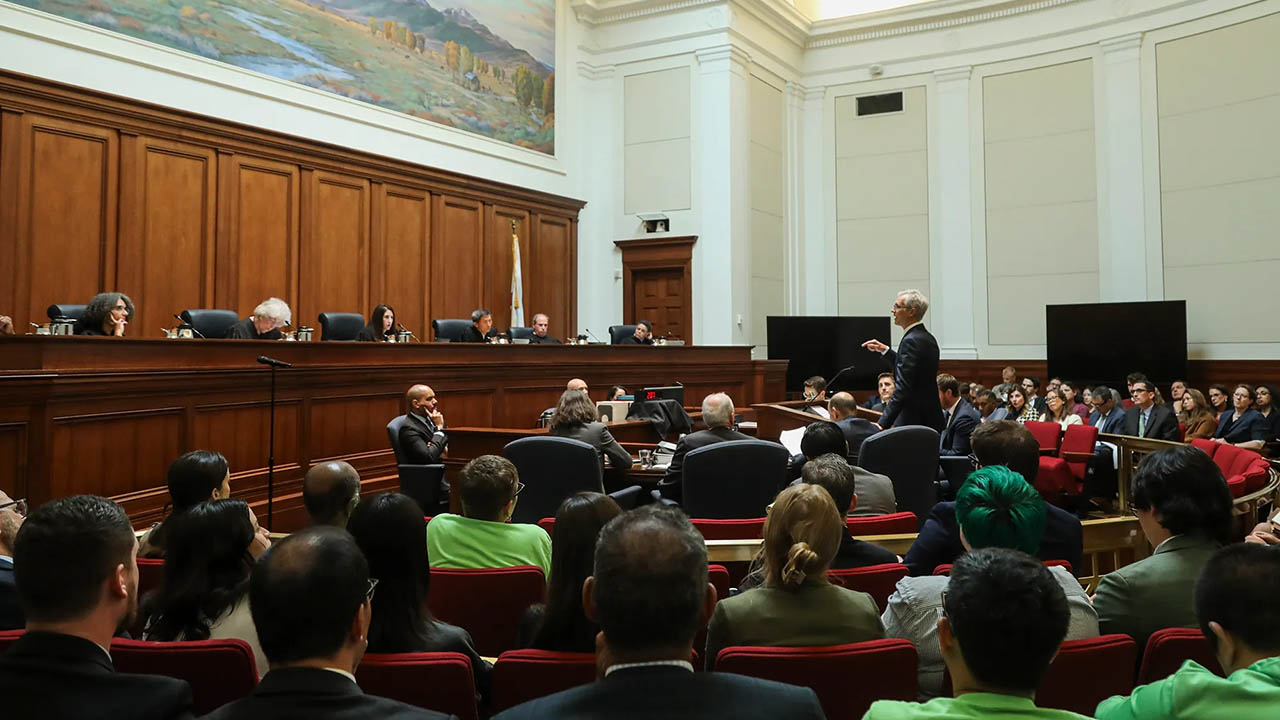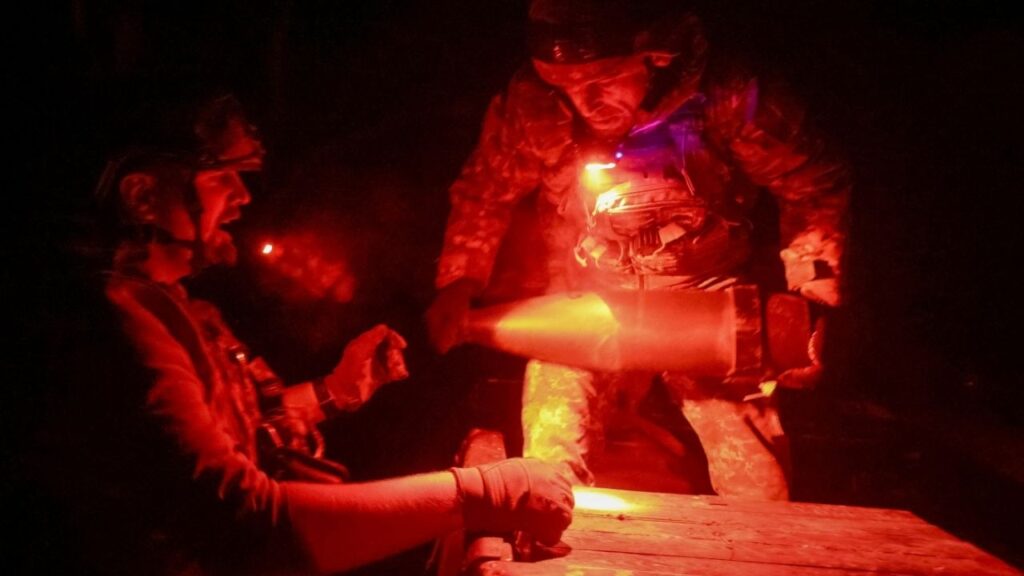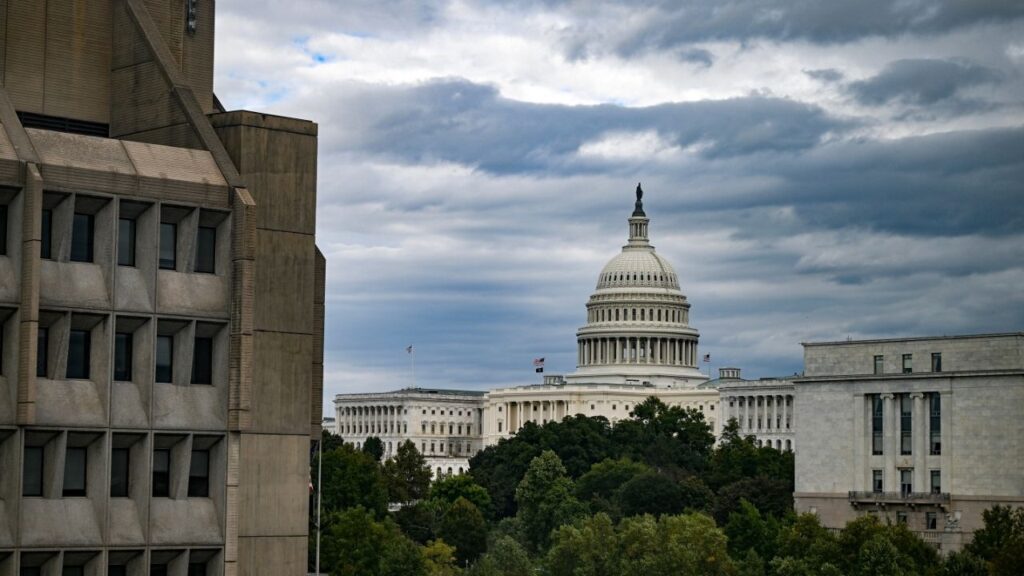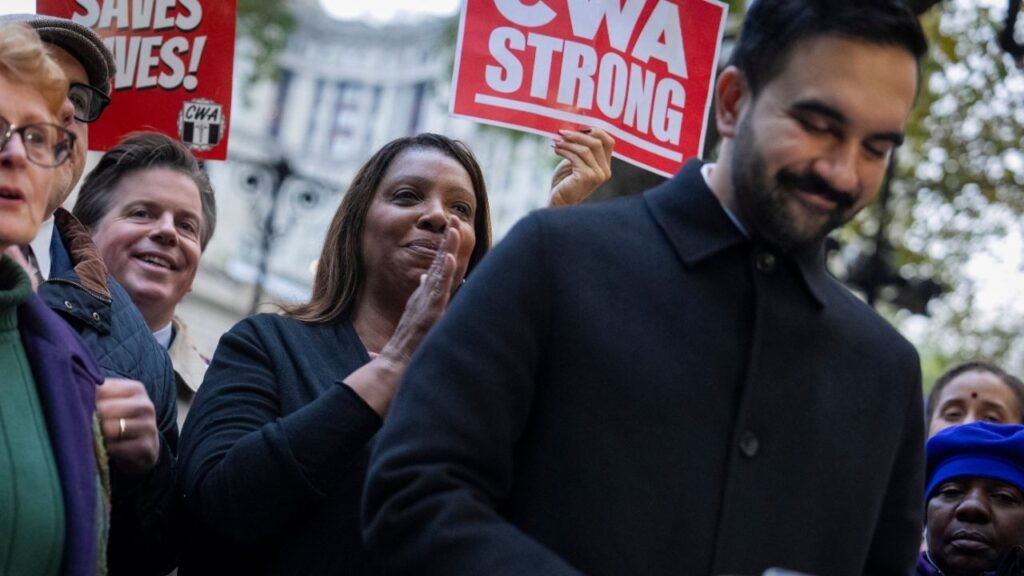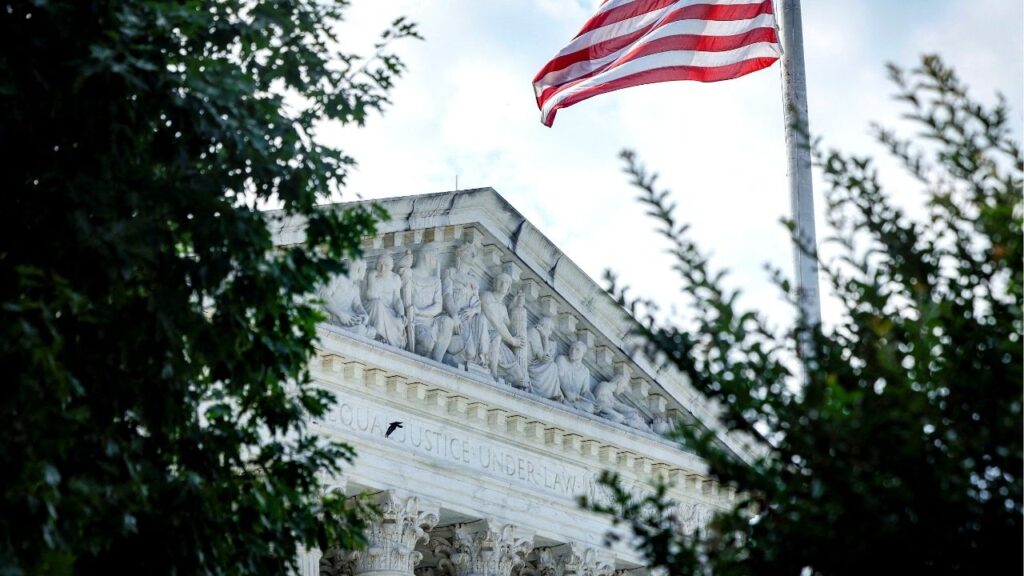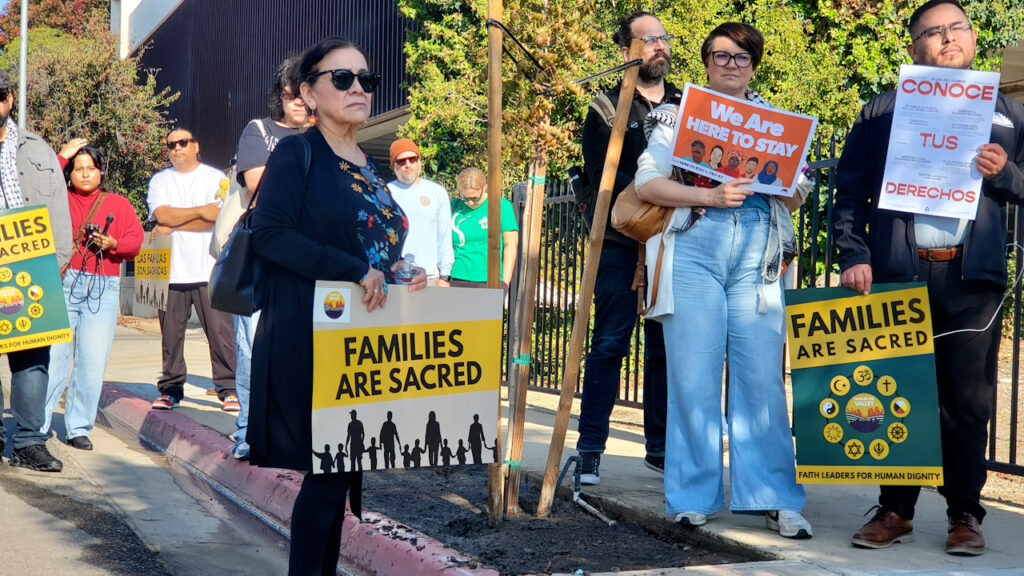California's Supreme Court revives a racial discrimination lawsuit, setting a new precedent for workplace harassment cases. (Martin Novitski/Supreme Court of California)

- The court ruled that a single use of a racial slur can be grounds for a discrimination lawsuit.
- Justices emphasized the need to consider the broader context of workplace relationships in such cases.
- The decision could impact how California courts handle future racial discrimination complaints in workplaces.
Share
|
Getting your Trinity Audio player ready...
|
Twanda Bailey didn’t tell her supervisors that a colleague called her the N-word in the San Francisco District Attorney’s Office, but she said in court claims when they learned about it, her workplace was forever changed.

Shaanth Nanguneri
CalMatters
In court records, she said a human resources officer seemed to mock her, jeering at her and telling her that a workers’ compensation claim she filed wasn’t a “real issue.”
When Bailey, an investigative assistant, sued the city over the 2015 incident, a Superior Court and appellate court ruled against her. They found her claims did not meet the legal bar for discriminatory conduct, in part because they centered on a single reported racial slur from a peer with no direct power over her rather than a pattern of harassment or retaliation.
California Supreme Court Revives Discrimination Case
That changed on Monday when the California Supreme Court revived her case by overturning an appeals court ruling — directing judges to reconsider the lawsuit in the context of broader office relationships rather than focusing on the one-time use of the racial slur.
“We conclude that an isolated act of harassment may be actionable if it is sufficiently severe in light of the totality of the circumstances, and that a coworker’s use of an unambiguous racial epithet, such as the N-word, may be found to suffice,” Justice Kelli Evans wrote in the unanimous decision.
Related Story: A DA Kept Black Women Off a Jury. California’s Supreme Court Says That ...
The slur in particular carries “the stinging barbs of history, which catch and tear the psyche the way thorns tear at skin.”
The decision adjusts the standard for how California courts may have to handle cases of racial discrimination in the workplace in a state where protections for employees against discrimination are already strong. Workers in the state’s civil service alone have filed around 300 to 400 complaints of racial discrimination annually, according to reports by the California Human Resources Department from 2020 to 2022.
The city of San Francisco argued in court filings that Bailey, who had joined the office in 2001, was not targeted by a supervisor with power over her, but rather a co-worker. Lawyers for the city also said supervisors took adequate action to ensure that the issue was addressed, and that the one instance of a slur was not sufficient to merit a trial.
A spokeswoman for San Francisco City Attorney David Chiu said his office is reviewing the decision and will take “any appropriate next steps.”
“San Francisco does not condone or tolerate the use of the language at issue in this case. The city has always recognized the seriousness of this situation, which is why city managers and HR professionals took immediate, corrective action,” wrote Alex Barrett-Shorter, a deputy press secretary, in a statement. “We are disappointed that those corrective actions were not enough for the court.”
Allegations of Mistreatment and Unfair Treatment
Bailey, a former investigative assistant for the SF DA’s office, alleged in her lawsuit that she was called the anti-Black racial epithet in January 2015 by a coworker who had previously treated other Black women in her office poorly. A supervisor learned about the incident roughly a week later and initiated meetings with human resources personnel, according to the ruling.
Bailey’s coworker denied using the epithet. The human resources meetings later went sideways for Bailey when a human resources officer, Evette Taylor-Monachino, informed her that a written complaint about her case was never actually filed. When Bailey asked for Taylor-Monachino to do so, the ruling says Taylor-Monachino refused and told Bailey that she could have created a hostile work environment for the person she was accusing.
According to the ruling, Taylor-Monachino was close with the coworker who had used the racial slur, raising questions for Bailey over whether she was given a fair hearing in the office. Bailey suffered breakdowns that she reported to a psychologist, and had to take time off work to gather herself amid the stress.
Taylor-Monachino is no longer employed with the city, a city of San Francisco spokeswoman said, though she declined to comment further.
Related Story: California Budgets up to $12 Million for Reparations Bills, a Milestone in ...
Reactions to the Supreme Court Decision
Daniel Ray Bacon, an attorney representing Bailey, told CalMatters that he was “pleased with the result.” In the over four decades he has practiced law, the courts have routinely determined that one utterance of an epithet is not necessarily enough to warrant legal standing for harassment and discrimination, he said.
This time around, though, he said the top court took into account how the incident affected Bailey. The justices appeared alarmed at what happened after Bailey had filed the complaint, such as when the office’s human resources officer allegedly confronted her in a parking lot and mouthed “you’re going to get it,” at her.
“This course of conduct was undertaken, not by a coworker, but by the human resources manager responsible for receiving complaints of harassment and discrimination in the workplace,” the unanimous decision reads. “It bears repeating that the opportunity to seek, obtain, and hold employment without discrimination because of race is a civil right.”
Related Story: San Francisco Apologizes to Black Residents for Decades of Racist Policies
Just under a dozen worker and civil rights organizations filed an amicus brief in support of her case, taking particular issue with the usage of the N-word in the workplace.
“We commend the California Supreme Court for recognizing today the odious nature of the n-word,” wrote Legal Aid at Work, a San Francisco-based nonprofit, in a statement following the decision. “It is an epithet that raises the specter of Black inferiority, racial terror, violence, and enslavement. And it has absolutely no place in our workplaces–regardless of whether uttered by a supervisor or a coworker.”
About the Author
Shaanth Kodialam Nanguneri comes to CalMatters as an intern on the health and justice beat.
About CalMatters
CalMatters is a nonprofit, nonpartisan newsroom committed to explaining California policy and politics.
RELATED TOPICS:
Categories
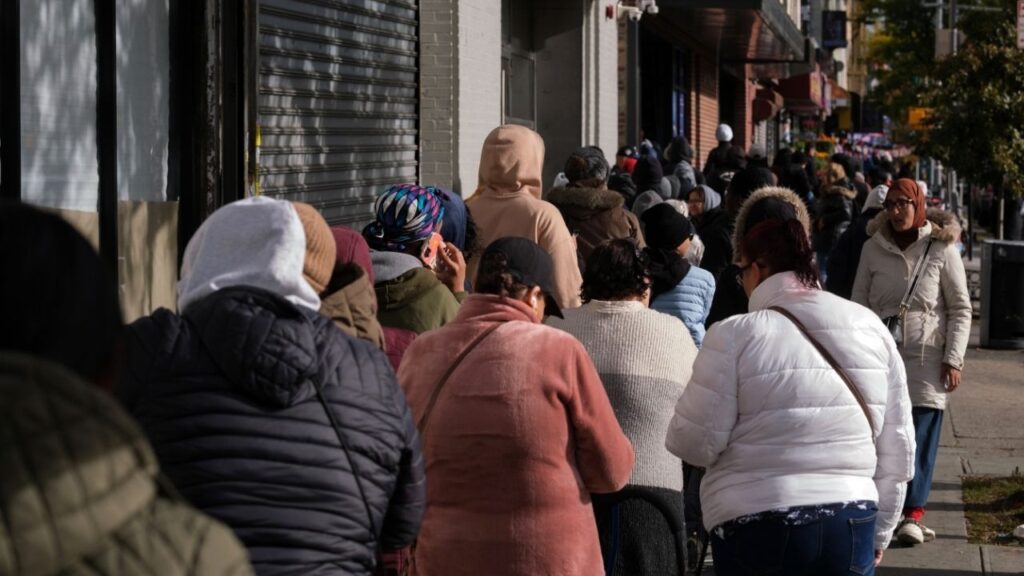
Trump Administration Faces Court Deadline on Food Stamp Benefits

UN Mandate for Gaza Force Still in the Works, Turkey Says




